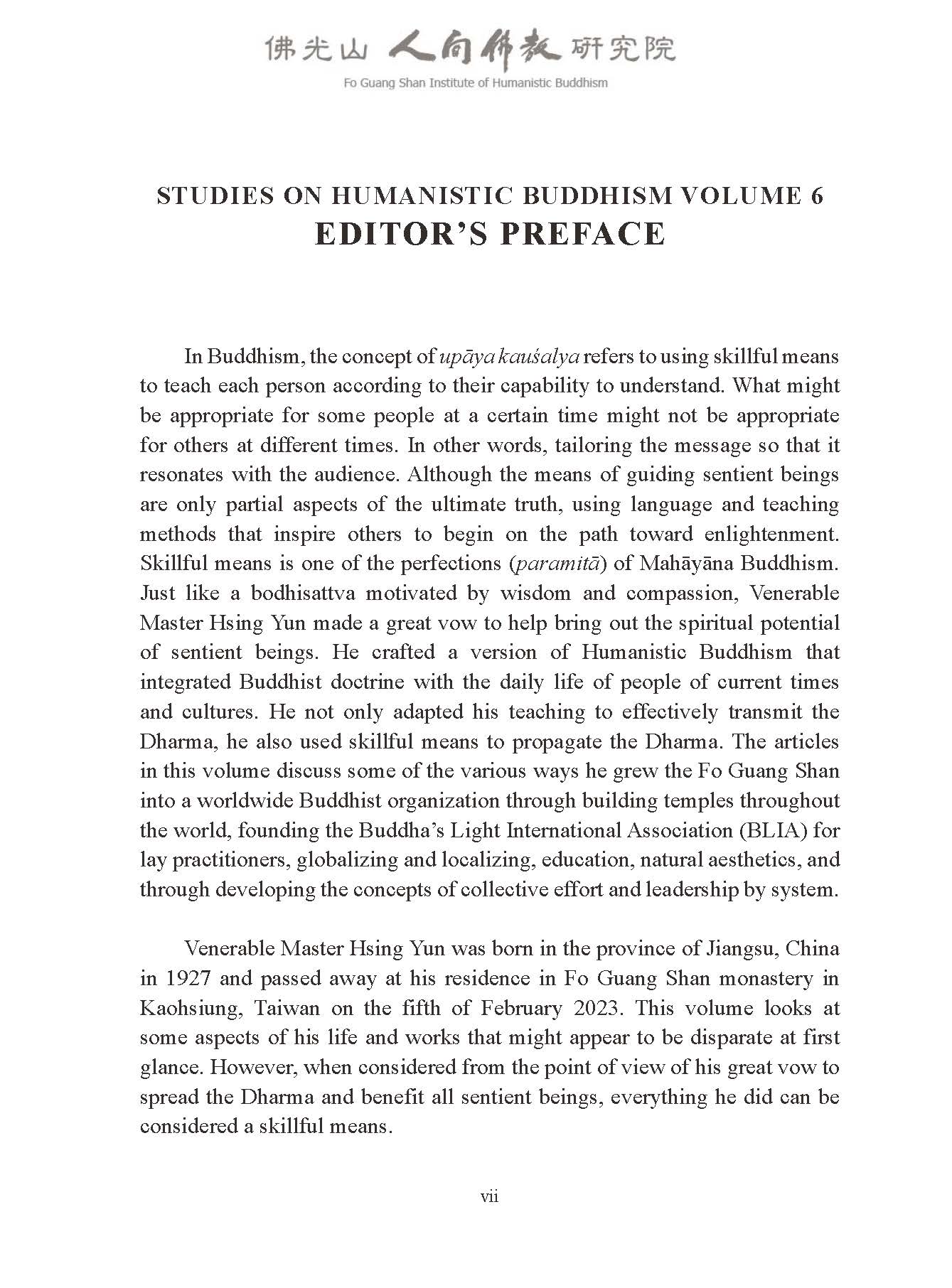
|
Editor’s Preface
作者
Michael Murphy
摘要
In Buddhism, the concept of upāya kauśalya refers to using skillful means to teach each person according to their capability to understand. What might be appropriate for some people at a certain time might not be appropriate for others at different times. In other words, tailoring the message so that it resonates with the audience. Although the means of guiding sentient beings are only partial aspects of the ultimate truth, using language and teaching methods that inspire others to begin on the path toward enlightenment. Skillful means is one of the perfections (paramitā) of Mahāyāna Buddhism. Just like a bodhisattva motivated by wisdom and compassion, Venerable Master Hsing Yun made a great vow to help bring out the spiritual potential of sentient beings. He crafted a version of Humanistic Buddhism that integrated Buddhist doctrine with the daily life of people of current times and cultures. He not only adapted his teaching to effectively transmit the Dharma, he also used skillful means to propagate the Dharma. The articles
in this volume discuss some of the various ways he grew the Fo Guang Shan into a worldwide Buddhist organization through building temples throughout the world, founding the Buddha’s Light International Association (BLIA) for lay practitioners, globalizing and localizing, education, natural aesthetics, and through developing the concepts of collective effort and leadership by system.
引文
Michael Murphy,Studies on Humanistic Buddhism VI : Humanistic Buddhism: Wisdom and Compassion in Action(2024)i-xi.
全文下載











